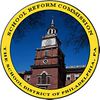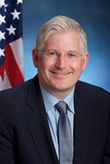Mayoral governance of a school district
| Education policy in the U.S. |
| Public education in the U.S. |
| School choice in the U.S. |
| Charter schools in the U.S. |
| Higher education in the U.S. |
| Glossary of education terms |
| Education statistics |
Mayoral governance of a school district refers to school boards controlled either entirely or in part by the mayor of the city in which the district is located. Some school boards are organized so that some or all members of the board are appointed by the mayor. In other cases, districts with elected boards may become mayor-appointed boards due to unsatisfactory academic performance. In the latter cases, the mayor becomes the responsible party for the district's governance, which he or she delegates through the appointed board members.
Applications
At least a fifth of the nation's states and Washington D.C. provide for mayoral-governance of school districts as a form of intervention following poor performance.
As of September 2015, 15 districts in the top 1,000 school districts by enrollment in the United States used a form of mayoral governance of schools. The following map lists these districts along with their enrollment as of the 2012-2013 school year. A bolded district name in the list above the map indicates a district that is the largest in its state.
Arguments
Pew Charitable Trusts study of Philadelphia
The Pew Charitable Trusts released a study in January 2016 that compared the Philadelphia School District's School Reform Commission (SRC) with other district leadership schemes around the country. Philadelphia has never elected its school board and the SRC was created in 2001 to provide state government more power in district governance. The SRC consists of five members with three gubernatorial appointees and two mayoral appointees.[1]
In the study titled "Governing Urban Schools in the Future: What's Facing Philadelphia and Pennsylvania," the organization reached the following conclusion:
| “ |
Education experts say that state takeovers of local districts have, at least in some cases, cured financial ills created through mismanagement. But there is no indication that any particular system for governing urban school districts is superior to another in improving long-term academic performance. Too many other factors, experts say, help determine what happens in the classroom, including the quality of principals and teachers, funding, and parental expectations. There is broad agreement on at least one conclusion: Governance systems that produce uncertainty, distrust, and ambiguous accountability can impede districts’ progress on any front. [2] |
” |
| —The Pew Charitable Trusts (2016), [1] | ||
Supporters
Supporters of this model argue that mayoral control ensures that education issues are part of citywide policy discussions. The Center for American Progress argued this point in a 2013 report titled "Mayoral Governance and Student Achievement":[3][4]
| “ |
Mayoral control and accountability is one of very few major education reforms that aim at governance coherence in our highly fragmented urban school systems. A primary feature of mayoral governance is that it holds the office of the mayor accountable for school performance. As an institutional redesign, mayoral governance integrates school-district accountability and the electoral process at the systemwide level. The so-called education mayor is ultimately held accountable for the school system’s performance on an academic, fiscal, operational, and managerial level. While school board members are elected by fewer than 10 percent of the eligible voters, mayoral races are often decided by more than half of the electorate. Under mayoral control, public education gets on the citywide agenda. [2] |
” |
| —Center for American Progress (2015)[4] | ||
Dr. Kenneth Wong, chair of the Education Department at Brown University and a co-author of the Center for American Progress report, argued in a 2008 speech that school districts led by mayors have other benefits, including:[5]
- Mayors are more likely to appoint school board officials who will handle non-education issues that are important to education, such as district finances.
- Mayors have more political power and negotiating experience to aid contract negotiations with teacher unions.
Criticisms
Opponents of the mayoral governance model argue that teachers and parents lack input into district decisions. In a 2010 interview with The Wall Street Journal, Chicago Teachers Union President Karen Lewis suggested that the city's mayoral control over public schools was disconnected from decision makers at the classroom level.[6] The Center for Public Education published a 2014 report titled "Toward Collaboration, Not a Coup: What the research says about mayoral involvement in urban schools" that included the following excerpt:
| “ |
Most researchers agree on one negative consequence — when mayors take charge of public schools, the role of parents and the community, especially among minority groups, can be marginalized and can further compromise democratic control of schools. [2] |
” |
| —Center for Public Education (2015)[7] | ||
Critics also question the conclusions drawn from research on the impacts of mayoral control on academic performance. State Rep. Michael Kearns (D-NY) opposed proposed mayoral control over Buffalo Public Schools in 2015. He questioned the potential impact of mayoral control on schools in a May 2015 interview with WGRZ:
| “ |
You cannot base a policy or law based on personality. I know the board has had a difficult time getting along, but I go on facts and I go on evidence, and the evidence states other cities, Chicago, Cleveland, we have not seen a growth in scores from mayoral control. Just the opposite. And I think there's an opportunity for things to happen that we will not want to see. [2] |
” |
| —State Rep. Michael Kearns (D-NY) (2015)[8] | ||
See also
Footnotes
- ↑ 1.0 1.1 The Pew Charitable Trusts, "Governing Urban Schools in the Future: What's Facing Philadelphia and Pennsylvania," January 2016
- ↑ 2.0 2.1 2.2 2.3 Note: This text is quoted verbatim from the original source. Any inconsistencies are attributable to the original source.
- ↑ Center for American Progress, "Release: Mayoral governance and student achievement," accessed October 9, 2014
- ↑ 4.0 4.1 Center for American Progress, "Mayoral governance and student achievement," accessed October 9, 2014
- ↑ Smart City Memphis, "Mayor led school districts make the grade," accessed October 9, 2014
- ↑ The Wall Street Journal, "Taking Schools Into Their Own Hands," August 16, 2010
- ↑ Center for Public Education, "Toward Collaboration, Not a Coup: What the research says about mayoral involvement in urban schools" June 2014
- ↑ WGRZ, "Kearns Opposes Mayoral Control of Buffalo Schools," May 25, 2015







